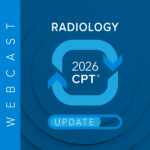Alzheimer’s disease is a currently irreversible brain disorder that progressively degrades memory, cognitive function, and the ability to carry out tasks of daily living. It is the number one cause of dementia in older Americans, contributing to 60-80 percent of cases.
On Jan. 11, 2022, the Centers for Medicare & Medicaid Services (CMS) approved the high-profile drug Aduhelm for treatment of Alzheimer’s disease. However, this coverage policy was released with certain specific circumstances in which the drug may be used.
Over 6 million older Americans have Alzheimer’s disease; this prevalence is expected to rise to 14 million by 2060, barring effective interventions (such as lifestyle changes, treatment of risk factors, and possible combinations of drugs). It is the sixth-leading cause of death in the United States. Though concerns have been raised over the accelerated approval of the drug Aduhelm, the anticipation of its availability is certainly no surprise, considering the statistics.
Aduhelm gained attention in 2021 as the first monoclonal antibody for treating Alzheimer’s disease. Not only did the treatment draw attention to the Food and Drug Administration (FDA) approval process (and the speed at which it was gaining momentum), but the initial established list price was also $56,000, raising the Medicare premium by $22 for 2022. In December, this price was reduced by 50 percent. An FDA advisory panel did not recommend the approval, as the risk related to treatment had not been fully vetted. The center for Clinical Standards and Quality with CMS suggested evidence of possibly harmful side effects, such as brain bleeds, headaches, dizziness, and falls.
Yet Aduhelm secured preliminary coverage on Jan. 11, 2022 for patients enrolled in an approved clinical trial that must be conducted in an outpatient setting. Coverage would also include related services such as positron emission tomography (PET) scans. However, there are parameters regarding the frequency of PET scans and coverage.
Effective Jan. 1, 2022, A HCPCS level II code, JO172, was established for reporting the injection of Aduhelm in 2-mg doses. This is the smallest amount that could be billed in multiple units to accommodate a variety of doses, thus making accuracy in reporting the amount used paramount. Revenue code 636 is used when billing the approved JO172 code.
Again, the patient must be enrolled in an approved clinical trial and meet certain specific criteria to receive the new drug; the patient must have a clinical diagnosis of mild cognitive impairment (MCI) due to Alzheimer’s disease or mild Alzheimer’s disease dementia, and evidence of amyloid pathology consistent with Alzheimer’s disease.
In addition, the patient must not have any neurological or other secondary medical condition that may significantly contribute to cognitive decline. Any medical conditions other than Alzheimer’s disease may increase significant adverse events.
Monoclonal antibodies directed against amyloid for the treatment of Alzheimer’s disease, provided outside of the CMS-approved randomized controlled trials and trials supported by the National Institutes of Health (NIH), are nationally non-covered.
Be aware that the new HCPCS code, J0172, for the drug treatment is effective from Jan. 1, 2022 to March 31, 2022, and is subject to change during a 90-day comment period. Public comment is welcome until March 31, 2022.
Those organizations that treat a population with high prevalence of Alzheimer’s should take note that the clock is ticking; we have less than two months to comment on this drug and its use.
Programming Note: Listen to Susan Gatehouse report this story live today during Talk Ten Tuesdays.
















